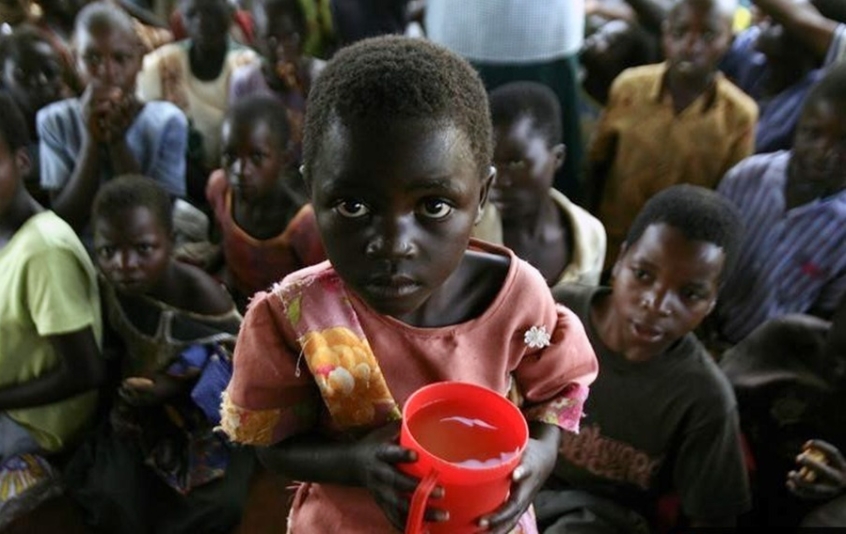
Christians are being urged to radically re-think their investment in overseas orphanages and consider giving instead to family-based forms of care.
Dr Krish Kandiah, founder of Home for Good, a charity that champions fostering or adoption, is challenging the longstanding Christian tradition of supporting orphanages despite their "detrimental effect" on the physical, social and emotional development of children.
With an estimated eight million children around the world living in orphanages, the charity has today launched a new campaign encouraging Christians in the UK to invest in ways to help these children find a loving home within families.
This could be through family strengthening, reunification with their birth family, or through local fostering or adoption.
"As a foster carer and adopter myself, I know that every child needs the love and care of a family. Through the work of Home for Good, we are seeing Christians stepping up to meet the needs of vulnerable children by becoming foster carers and adopters for UK children," he said.
"So now we are asking people to have the same ambition for the vulnerable children that we are supporting overseas. They too need the love of a family rather than settling for living in institutions. If orphanages are not good enough for our kids, they're not good enough for any child."
A ComRes poll for Home for Good found that churchgoers were seven times more likely to visit or volunteer in orphanages than the rest of the population, while a Resonate Panel survey of 1,200 Christians found that 44% had financially supported an orphanage in the last 12 months.
At the same time, according to figures from Home for Good, an estimated 80 per cent of children in orphanages have a living parent and have been forced into institutional care, not because of bereavement but because of poverty.
The Government announced last year that it was ending support for overseas orphanages, with the then Secretary of State for International Development, Penny Mordaunt, saying at the time that UK funding would instead be championing families.
"Orphanages are harmful to children and it is often those with disabilities who are placed in them the most. This needs to end, which is why I'm committed to the long-term plan to ensure all children grow up with a family of their own," she said.
Earlier this year, UK Aid Direct guidance was updated to reflect this change and now states that applications will no longer be accepted for the funding of orphanages.
"Applications for the funding of orphanages or other residential children's institutions are not accepted under UK Aid Direct," the guidance reads.
"Children's prospects are generally best served by family-based care – be it with their own families, extended families or qualified foster families.
"Consideration may be given to projects that support the reintegration into families/family-based care of children from institutions."
Dr Kandiah warned that in some places, orphanages had become a "monster that needed feeding" because empty beds would mean less funding.
"It seems that many of the world's orphanages rely on children staying put in order to receive the maximum funding. I have been told by government officials in Ukraine and workers on the ground in Uganda that empty beds in orphanages are considered a problem; orphanage workers actively go and recruit new children to fill them," he explained.
"Essentially the orphanage becomes a monster that needed feeding because there are staff salaries to pay and facilities to maintain, and empty beds mean less money to keep the institution going."
Dr Kandiah said that the Christian community could be part of the solution to finding families for children who need them.
"Our research has found that churchgoers are seven times more likely to visit or volunteer in orphanages and around 44% have given money to orphanages in the last year," he said.
"This makes UK Christians significant supporters of orphanages. However, we also know that they are more likely to give to great forms of care for vulnerable children and are more likely to support community or family-based projects too.
"So, we want to cheer the Church on to keep living out our Biblical mandate to care for the vulnerable but also equip Christians to ensure their support is never misdirected to forms of care that do more harm than good."
The call is being supported by other organisations advocating for 'deinstitutionalisation'.
Senior Child Protection Adviser at Save the Children UK, Rebecca Smith, said the Church had an important role to play in the care of children.
"Save the Children works in 118 countries worldwide. In so many of these contexts, church members and religious leaders play an incredibly important role in the care and protection of children," she said.
"We are so pleased that Home for Good is launching this campaign as we hope it's one of many steps needed to work together to help children remain in safe and loving families."
Home for Good has secured funding from the UBS Optimus Foundation, a philanthropic fund administered by Swiss bank UBS, towards the Homecoming Project.
The foundation's Nalini Tarakeshwar said, "We know through our care reform work around the world that there is more that could be done to engage faith communities, as many remain supporters of orphanages.
"We are excited to be supporting Home for Good with the Homecoming Project and hope it will serve as a resource to help individuals and faith leaders to ensure that their support fits with guidelines on best forms of care for children."
Find out more about the initiative at homecomingproject.org













